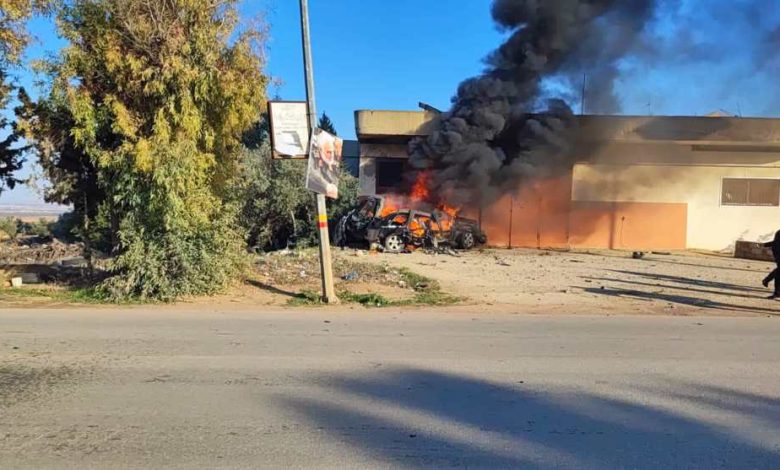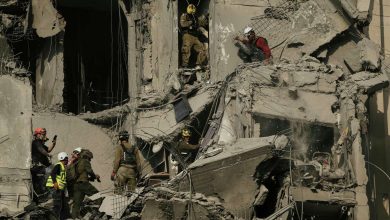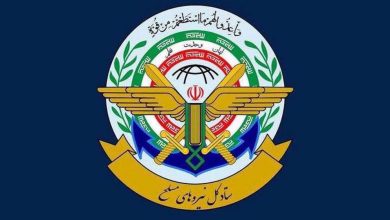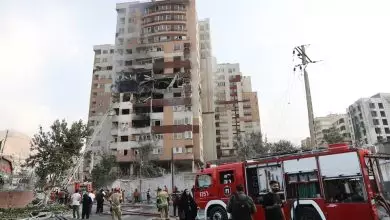2 people killed in Israeli drone strike in eastern Lebanon, marking a recent breach of the ceasefire agreement
In a significant breach of the ceasefire agreement with Lebanon, Israeli military aircraft launched an airstrike in eastern Lebanon, resulting in the deaths of at least two individuals. The strike specifically targeted a vehicle, escalating tensions in the region.

According to a report from Lebanon’s official National News Agency, an Israeli unmanned aerial vehicle targeted a pickup truck on the outskirts of Hermel on Thursday. The strike resulted in the deaths of two individuals and left multiple others injured.
Arab media sources, referencing local informants, reported that the strike targeted Hezbollah figure Mahdi Shaheen.
Following several hours, an additional Israeli airstrike was conducted on a residential district in the village of Deir Qanoun al-Naher, located in southern Lebanon.
There have been no immediate reports regarding potential casualties or the scale of the damage sustained.
The incident followed just one day after an Israeli drone strike targeted a vehicle traveling along the Hosh al-Sayyed Ali-al-Qasr road in northern Hermel, resulting in the deaths of two individuals.
In the aftermath of the attack, Israeli reconnaissance aircraft conducted low-altitude flights over Hermel.
The Israeli military announced that it had conducted a strike targeting a significant figure within the Hezbollah resistance movement in Lebanon.
The military announced on Wednesday that it had executed a targeted, intelligence-driven operation against a key Hezbollah figure associated with unit 4400 in Lebanon’s Qasr region.
Several hours afterward, Avichay Adraee, the Arabic-language spokesperson for the Israeli military, announced that the strike had aimed at Maher Ali Nasreddine, identified as a leader within the 4400 unit.
Israel has agreed to a ceasefire with Hezbollah following significant losses incurred over nearly 14 months of conflict, marking a failure to achieve its strategic goals in the military campaign against Lebanon. The ceasefire was implemented on November 27.
Since the implementation of the agreement, occupation forces have reportedly carried out almost daily assaults on Lebanon, allegedly breaching the ceasefire with airstrikes across the Arab nation.
On January 27, Lebanon declared its decision to prolong the ceasefire with Israel, extending its duration until February 18.
Israel continues to hold control over five strategic sites in southern Lebanon—Labbouneh, Mount Blat, Owayda Hill, Aaziyyeh, and Hammamis Hill—beyond the set deadline of February 18, according to recent reports.
Lebanon has firmly objected to the ongoing presence of Israeli forces, labeling it a breach of the ceasefire agreement and the established deadline for withdrawal. High-ranking officials in Beirut have declared their intention to utilize “all means” necessary to expel the occupation forces from Lebanese territory.







